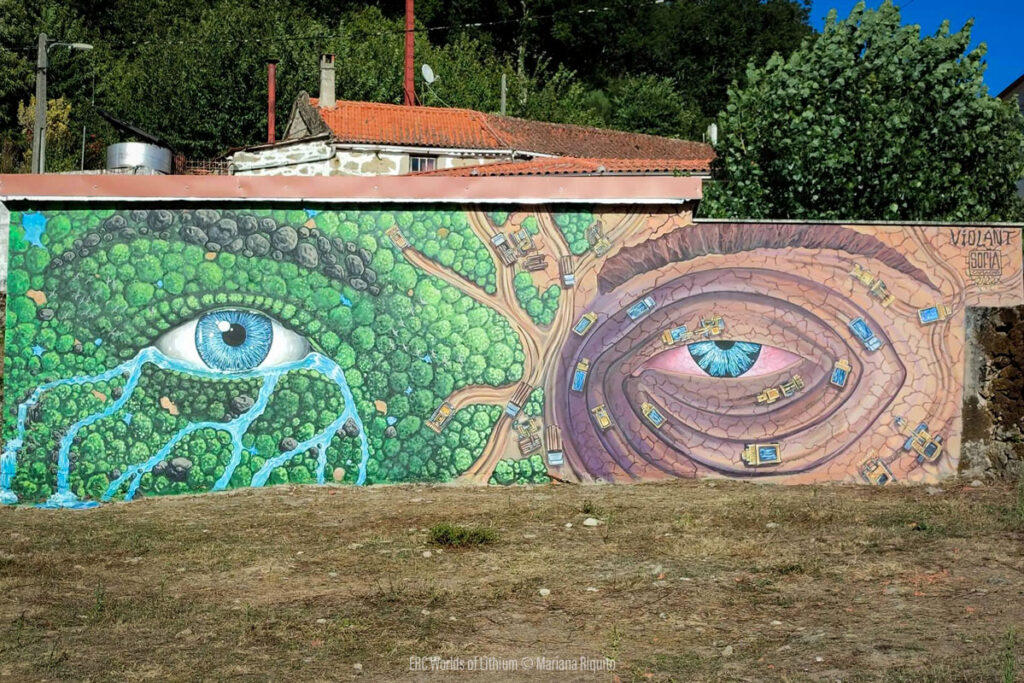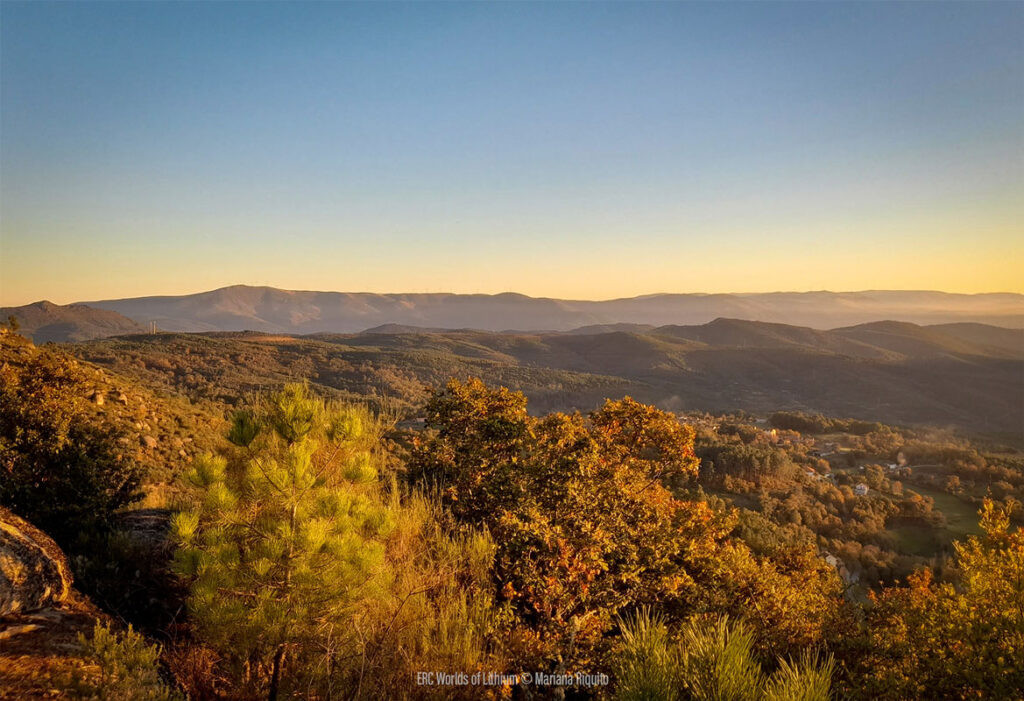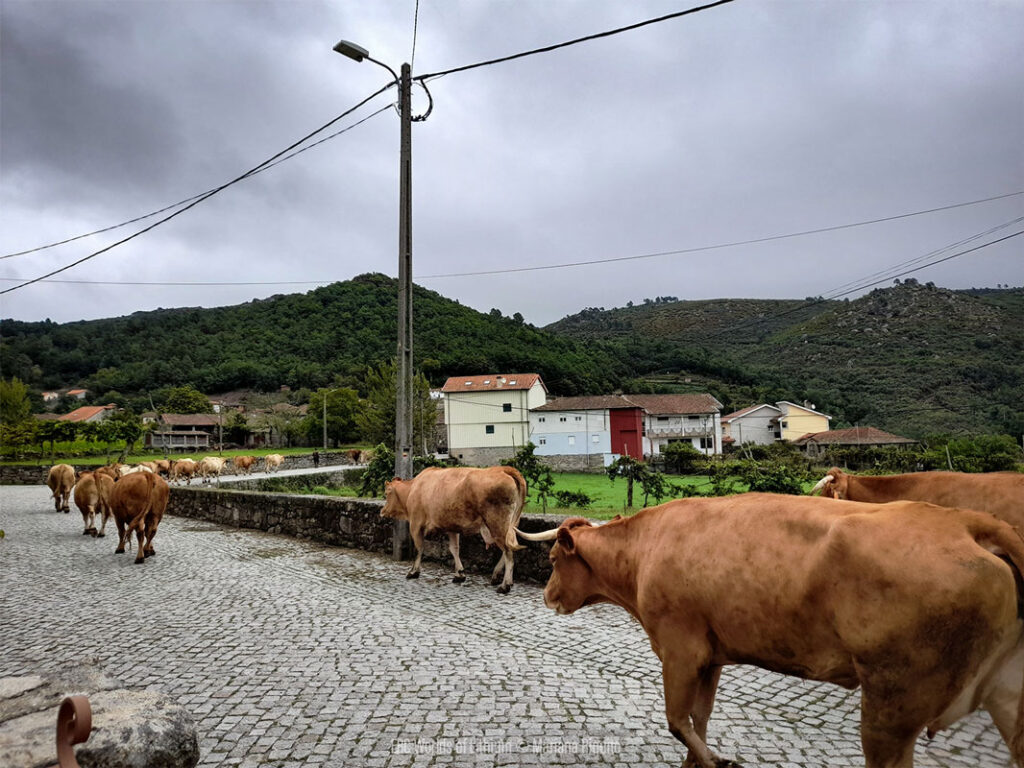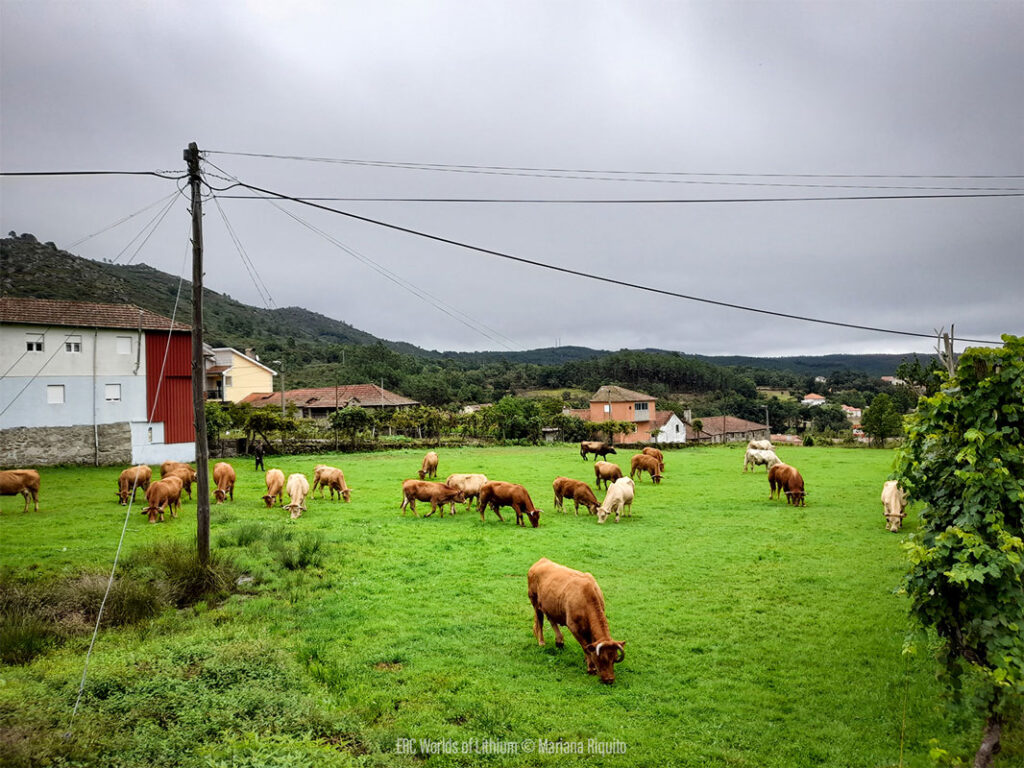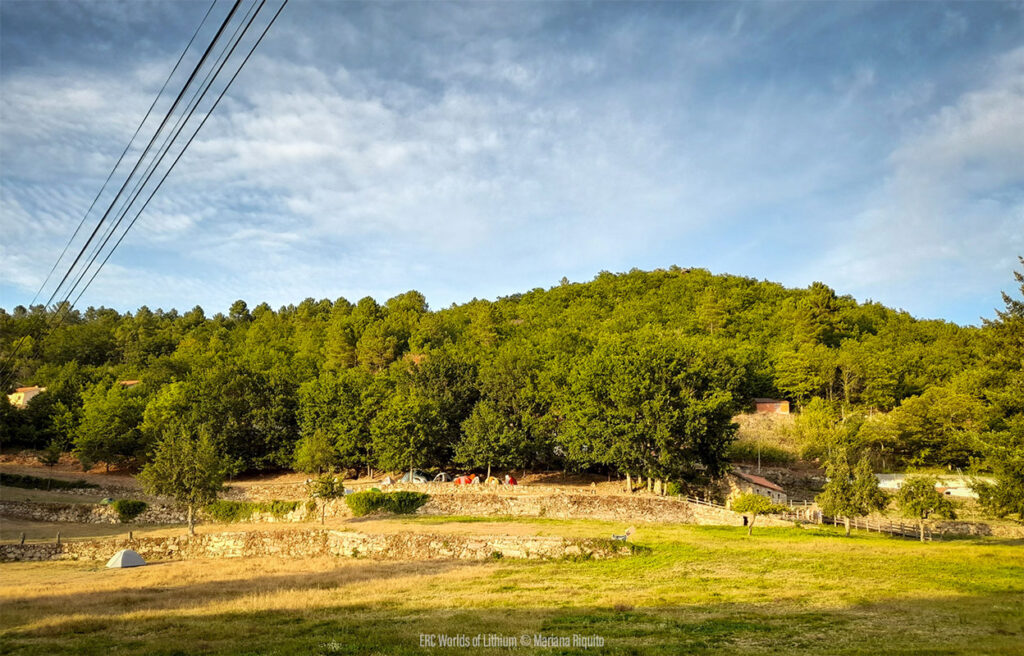
Affiliated member
Research
Mariana’s research entails an ecofeminist ethnographic investigation into two ongoing conflicts over prospective lithium mines in Barroso, Portugal. The two prospective lithium mines are being labelled as “green” and “sustainable" and are in line with the current European climate policy framework, which aims to reach carbon neutrality by 2050. However, the agrarian communities of Barroso and their renowned socio-agro-ecological traditions are threatened with extensive socioecological and economic impacts, leading most locals to reject these mining projects.
The emerging conflicts over lithium mines in Barroso point to the importance of critically examining socioecological concerns around climate mitigation imperatives. While research on lithium mining, and extractivism more generally, has been exhaustively tackled within a Latin American context, little academic attention has been paid to European extraction plans and resistances. Particularly under-researched are the ontological dimensions of these conflicts in a Global North context. Mariana’s research will address these research gaps, by focusing on how different versions of climate action are enacted within the context of lithium mining resistances in Portugal. Her research is theoretically informed by political ecology l, political ontology and ecofeminist scholarship, and it is methodologically inspired by militant-research sensibilities and activist praxis. With her research, Mariana will try to contribute to an in-depth and nuanced understanding of the multiple worldings and perspectives at stake in the context of climate policies informed by resource extraction.
Fieldsite
Mariana’s research takes place in the region of Barroso, in northern Portugal, an important biodiversity hotspot, home to Iberian endemic plant and animal species, some of them endangered. In 2018, Barroso was the first region in Portugal (and one of the only seven in Europe) to be classified as a ‘World Agricultural Heritage’ site and as a ‘Globally Important Agricultural Heritage System’ by the Food and Agriculture Organization of the United Nations (FAO). The FAO has recognized the authenticity of the territory, the traditional way of working the land, treating livestock, and the communitarianism of its inhabitants. Indeed, in Barroso, the locals preserve — virtually to this day — ancestral methods of treating animals and working the land, the great majority of which is common, known as “baldios” or “terras baldias.”
For the purpose of her doctoral research, Mariana will maintain a base in the small agricultural village of Covas do Barroso, where the British multinational Savannah Resources aims at opening what would be the first and biggest open-pit lithium mine in Europe, to deserve the continent’s “energy transition.”
Biosketch
Mariana Riquito (she/her) is a PhD Candidate in Social Sciences at the Amsterdam Institute for Social Science Research of the University of Amsterdam (the Netherlands), and a Junior Researcher at the Centre for Social Studies of the University of Coimbra (Portugal). She is an affiliated researcher of the ERC Project – Worlds of Lithium; and a research member of the COST Action – Traces as Research Agenda for Climate Change, Technology Studies, and Social Justice (TRACTS).
Mariana Riquito holds a Bachelor's and a Master's Degree in International Relations from the Faculty of Economics of the University of Coimbra (Portugal) and a Master's Degree in Sociology and Political Sciences from Sciences Po Bordeaux (France).
She is interested in critical discussions around the ‘Anthropocene,’ the politics of the climate crisis and the energy transition, as well as on resistances and alternatives to extractivism(s). Mariana is deeply inspired by her own experiences in feminist, anti-fascists, autonomous social movements, and tries to merge her activist practices with her academic work.
Previous publications
Riquito, Mariana (2023), “Beyond the master narrative of ‘green’ modernity: A critical reading of the energy transition”, Relações Internacionais. 79. https://doi.org/10.23906/ri2023.79a03
Dunlap, Alexander; Riquito, Mariana (2023), “Social warfare for lithium extraction? Open-pit lithium mining, counterinsurgency tactics and enforcing green extractivism in northern Portugal”, Energy Research and Social Sciences. 95. https://doi.org/10.1016/j.erss.2022.102912
Dunlap, Alexander, and Mariana Riquito. 2023. “Social Warfare for Lithium Extraction? Open-pit Lithium Mining, Counterinsurgency Tactics and Enforcing Green Extractivism in Northern Portugal.” Energy Research and Social Science 95.
Riquito, Mariana. 2022. “Futuro Minado? Não, Obrigado!” In Fu ro / The Perish Review, edited by Margarida Vale de Gato, Miguel Manso, Nuno Marques, pp. 98-106. Sertã: Casa de Gigante - Associação Cultural Mandriões no Vale Fértil. ISBN: 9789895431557. Available at https://acrobat.adobe.com/id/urn:aaid:sc:EU:f94e1d15-b4fa-4d20-aff1-3d3ba15d8afa?viewer%21megaVerb=group-discover
Carvalho, António, and Mariana Riquito. 2022. “Listening-with the Subaltern: Anthropocene, Pluriverse and More-than-human Agency.” Nordia Geographical Publications 51 (2): 37-56.
Carvalho, António, Mariana Riquito, and Vera Ferreira. 2022. “Sociotechnical Imaginaries of Energy Transition: The case of the Portuguese Roadmap for Carbon Neutrality 2050.” Energy Reports 8: 2413-23.
Riquito, Mariana. 2021. “Antropoceno Patriarcal, Petro-masculinidades e Masculinidades Industriais: Diálogos Feministas Sobre a Crise Climática.” ex æquo 43: 15-29.
Riquito, Mariana. 2020. “As Alterações Climáticas como Reestruturadoras do Sistema Internacional e como Catalisadoras de Mudanças da Ordem Mundial.” Sul Global 1(1): 84-106.

